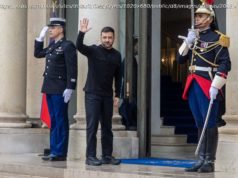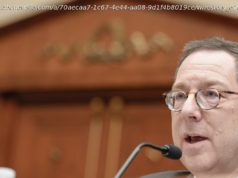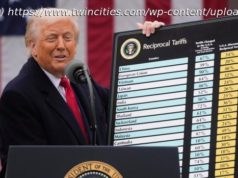President Donald Trump will meet with rapper Kanye West in the White House to discuss issues pertinent to the black community, especially in Chicago
President Donald Trump will meet with rapper Kanye West in the White House on Oct. 11. The two will have lunch and discuss a number of issues pertinent to the black community, especially in Chicago, where West has an opportunity to offer a helping hand.
“Kanye West is coming to the White House to have lunch with President Trump.” White House Press Secretary Sarah Huckabee Sanders said in an Oct. 9 statement. “Topics of discussions will include manufacturing resurgence in America, prison reform, how to prevent gang violence, and what can be done to reduce violence in Chicago.”
Trump has recently announced a move to reduce violent crime in Chicago, where 2,346 have been shot so far this year (through Oct. 8).
West grew up in Chicago and recently announced to move back there from Los Angeles.
A successful pop artist, producer, entrepreneur, and supporter of Trump, West is uniquely positioned to connect Trump with the black community, which has nearly uniformly voted left for decades.
Trump has been trying to pitch his “Make America Great Again” (MAGA) agenda to African Americans, focusing on jobs, safety, and education.
Strengthening Trump’s hand, black unemployment has broken through several historical lows over the past year and violent crime slightly fell in 2017, after two years of significant increases.
Trump is also pushing power over education back to the local level, promoting private schools, charter schools, and homeschooling as well as vocational education.
West wore a MAGA hat during his recent “Saturday Night Live” performance and complained that people backstage tried to pressure him not to wear it. After his performance, he shared a few thoughts, including criticism of the Democratic Party for promoting welfare in black communities, which incentivizes single parenthood.
Despite intense criticism for supporting Trump, he has stood his ground.
“I think the universe has balance. Ninety percent of news is liberal—90 percent of TV, L.A., New York, writers, rappers, musicians—so it’s easy to make it seem like it’s so, so one-sided,” he said.
During his White House visit, West will also meet with Jared Kushner, Trump’s advisor and son-in-law. Kushner has spearheaded Trump’s prison reform initiative in the Congress.
West previously said he wanted to talk to Trump about helping Chicago.
“I feel that he cares about the way black people feel about him, and he would like for black people to like him like they did when he was cool in the rap songs and all this. And he will do the things that are necessary to make that happen because he’s got an ego like all the rest of us, and he wants to be the greatest president, and he knows that he can’t be the greatest president without the acceptance of the black community. So it’s something he’s gonna work towards, but we’re gonna have to speak to him,” he told WGCI 107.5 Radio in August.
“I got a direct line to Adidas. I got a direct line to the President… so let’s see what happen with it and how I apply that to the city [of Chicago], because I’m going to apply it.”
Chicago suffered from a massive murder wave in 2015 and 2016. In 2017, the murder rate declined by 14 percent, though it still stands above 24 per 100,000 residents—more than four times the national average.
Trump said on Oct. 8 he’s instructed Attorney general Jeff Sessions to “straighten out the terrible shooting wave” in the city.
He suggested the Chicago to “strongly consider stop-and-frisk,” where an officer stops and questions a person deemed to be suspicious and may frisk those suspected to be dangerous.
“It was meant for problems like Chicago,” Trump said.
Chicago cut back on police stops after social justice advocates criticized that too many black people were stopped.
Trump said stop-and-frisk is effective although “it[‘s] got to be properly applied.”
African Americans appear to have somewhat thawed toward Trump over the past year. His job approval stood at 35 percent among likely black voters in an Oct. 4 Rasmussen poll release, up from 23 percent a year before.
Reuters/Ipsos polls showed milder gains, from low-teens a year ago to the recent mid-teens.






